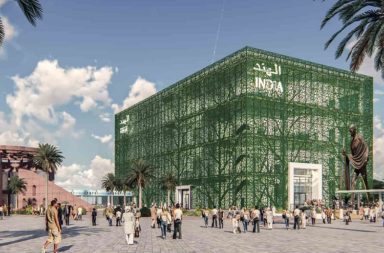With an idea of ‘leaving no one behind’ in September 2015, the General Assembly adopted the 2030 Agenda for Sustainable Development that includes 17 Sustainable Development Goals (SDGs). The new Agenda emphasizes a holistic approach to achieving sustainable development for all. Although, the word “disability” is not cited directly in all goals, the goals are indeed relevant to ensure the inclusion and development of persons with disabilities. The newly implemented 2030 Agenda for Sustainable Development holds a deep promise for persons with disabilities everywhere.
The 17 goals which UN have chosen for the sustainable development are:
- No Poverty: To remove extreme poverty from every country of the world. Those people are considered to be extreme poor who survives on less than 1.25 dollars per day.
- Zero Hunger: To end hunger, all forms of malnutrition, double the agricultural productivity and maintain the genetic diversity of seeds.
- Good Health & Well Being: Everyone should get a healthier life and better mental health for good well being.
- Quality Education: To ensure that all the girls and boys get equitable education, so that they can get employment or become able to be an entrepreneur.
- Gender Equality: End all forms of discrimination against all women and girls everywhere and eliminate all forms of violence against them. Promote woman empowerment.
- Clean Water & Sanitation: To provide clean drinking water and cleanliness to everyone and form an organised process to get it.
- Affordable & Clean Energy: To ensure that everyone should get affordable, sustainable and modern form of energies.
- Decent Work & Economic Growth: Sustain per capita economic growth in accordance with national circumstances and, in particular, at least 7 per cent gross domestic product growth per annum in the least developed countries.
- Industry, Innovation and Infrastructure: Develop quality, reliable, sustainable and resilient infrastructure, including regional and transborder infrastructure, to support economic development and human well-being, with a focus on affordable and equitable access for all.
- Reduced Inequality: progressively achieve and sustain income growth of the bottom 40 per cent of the population at a rate higher than the national average.
- Sustainable Cities and Communities: Ensure access for all to adequate, safe and affordable housing and basic services and upgrade slums.
- Responsible Consumption and Production: Implement the 10-year framework of programmes on sustainable consumption and production, all countries taking action, with developed countries taking the lead, taking into account the development and capabilities of developing countries. Also to achieve the sustainable management and efficient use of natural resources.
- Climate Action: Strengthen resilience and adaptive capacity to climate-related hazards and natural disasters in all countries.
- Life Below Water: Prevent and significantly reduce marine pollution of all kinds, in particular from land-based activities, including marine debris and nutrient pollution.
- Life on Land: To ensure the conservation, restoration and sustainable use of terrestrial and inland freshwater ecosystems and their services, in particular forests, wetlands, mountains and drylands, in line with obligations under international agreements.
- Peace & Justice Strong Institutions: Significantly reduce all forms of violence and related death rates everywhere. End abuse, exploitation, trafficking and all forms of violence against and torture of children. Promote the rule of law at the national and international levels and ensure equal access to justice for all.
- Partnerships to achieve the Goals: Strengthen domestic resource mobilization, including through international support to developing countries, to improve domestic capacity for tax and other revenue collection.
To establish these 17 SDGs in India successfully Prime Minister Narendra Modi has taken an initiative. This initiative named SDG Choupal has started recently in Governance of NITI Aayog and with the support of UN Habitat, Misnistry of Social Justice & Empowerment, MSME, WHO, Nagrik Foundation and Dainik Bhaskar.
Dainik Bhaskar’s Chairman and Editor in Chief Deepak Dwivedi explained that what SDG Choupal is and how India is going to achieve all the goals by 2030.





